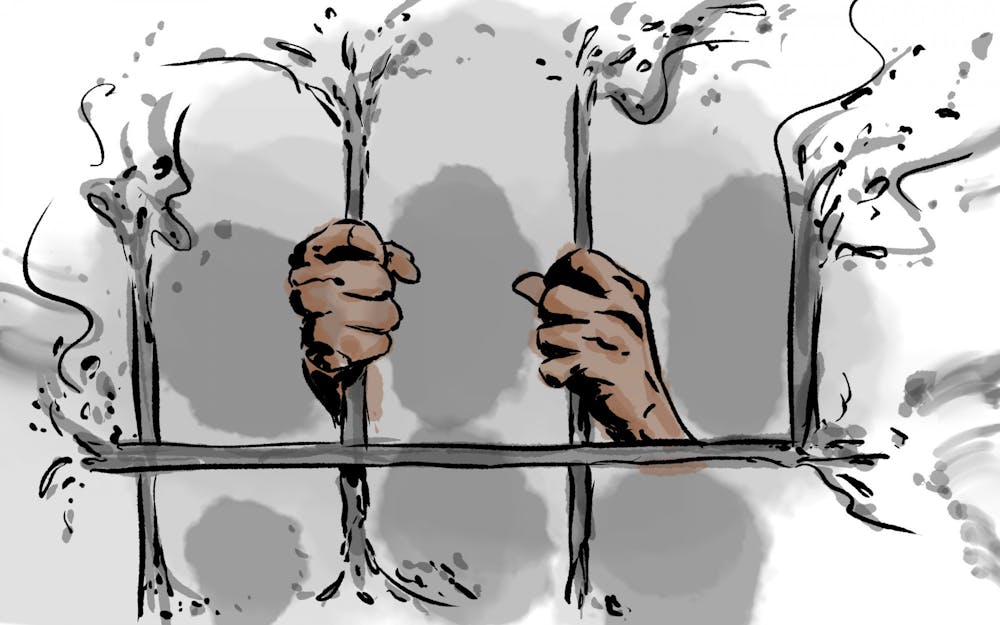Amid ongoing debates about where to build a new prison in Monroe County, I’d like to do something most people probably think is downright insane: question the very existence of prisons in the first place.
That prisons ought to be at least reformed is a pretty easy position to have. American prisons are barbaric, racist institutions. And don’t take my word for it – instead, listen to the Norwegian Supreme Court, which in 1999 ruled against extraditing a prisoner to the U.S. because they believed the prisoner would be subject to “inhumane” conditions in U.S. prisons.
That was decades ago, you might say. True, but still today prisoners are stripped of many rights of a citizen, are subject to what amounts to slave labor and are often brutally mistreated by those who guard them. Imprisonment was especially awful during the pandemic, when prison deaths rose nearly 50%.
So, reform is the solution, right? If prisons in the U.S. are so inhumane that other countries refuse to extradite prisoners here, surely the solution is to make prisons more humane.
[Related: OPINION: The United States of hypocrisy]
I thought this was the solution until I read Angela Davis’s short book “Are Prisons Obsolete?” over the winter break.
I can’t recommend her book enough – it completely changed my perspective on what should be done about prisons. In short, she invites us to imagine a world in which they no longer exist.
Prisons haven’t always existed. In fact, prisons as we know them today were themselves a reform emerging in the late 18th century in the U.S. and England. Before incarceration as a system of punishment, people in much of the world were subjected to extremely violent and disgusting penalties for crimes – corporal or capital punishment.
The reformers, typically Protestant Christians like John Howard and philosophers like Jeremy Bentham, fought for a system they believed would deter further crime and allow inmates the time and conditions to reflect on their crimes and eventually leave rehabilitated.
That the reformers were wrong has been empirically proven, as the majority of so-called criminals return to a life of crime as soon as they’re released from prison. And who’s surprised by this, given the conditions to which inmates are subject? It’s not as if being released from prison guarantees someone secure employment, housing or mental healthcare. People are left to fend for themselves.
So, what would prison abolition look like? One of abolitionists’ main strategies is decarceration, or reducing the number of incarcerated people by releasing them and diverting others away from prisons who may otherwise be incarcerated.
There are currently more people with mental illness in jails and prisons than in hospitals in the U.S. Shifting people away from prison and toward the care they need is of the utmost importance. Then there are immigrants lacking permanent legal status, who in 2019 made up 13% of the federal prison population. If a person’s only crime is stepping across an arbitrarily drawn line on a map, then imprisoning them is an injustice, pure and simple.
Other steps toward decarceration include decriminalizing all drugs and sex work. Those who are addicted to illegal substances need hospitals, not prisons. As for sex work, most arguments against its decriminalization are founded upon puritanical religious grounds and are therefore not deserving of serious consideration.
Furthermore, we should take immediate action in eliminating private prisons, which profited from the incarceration of nearly 100,000 people in 2020. For-profit prisons have no incentive to rehabilitate inmates – in fact, they’re incentivized to hold prisoners for as long as possible in order to extract as much profit from them as they can.
[Related: OPINION: A world to win: what it means to be a young American socialist]
Enormous profits are to be made from public prisons as well. U.S. prison workers in state and federal prisons produce $11 billion worth of goods and services for various corporations annually while being paid pennies per hour in what amounts to essentially slave labor.
It should be clear that prisons cannot be abolished overnight – massive societal transformations are necessary first. An economic system which happily makes use of slave labor, for example, must be dismantled. Mental healthcare must be expanded. Hostilities toward immigrants must be eliminated. Drug policies which disproportionately harm racial minorities must be overturned.
But what about serial killers and sexual predators, you object. Davis spends little time considering them in her book, but I don’t think that’s a detriment to it. We’re calling for building a society that’s less sexist, less violent. Overcoming violence and sex crimes will be difficult, and eliminating them completely perhaps impossible – but it’s worth trying to go as far as we can, no?
Perhaps the society in which we currently live is a society that needs prisons. Let me put one simple question to you: are you satisfied with this society?
Jared Quigg (he/him) is a junior studying journalism and political science.




